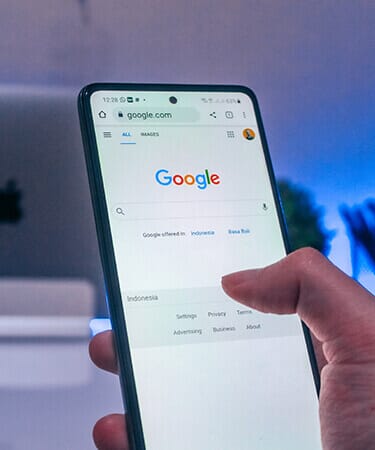Background Google published a blog post confirming what many marketers have long anticipated — its primary index will begin prioritsing mobile content when determining relevance. Google has seen more searches performed on mobile devices than on desktop for over a year...

Background
Google published a blog post confirming what many marketers have long anticipated — its primary index will begin prioritsing mobile content when determining relevance. Google has seen more searches performed on mobile devices than on desktop for over a year and this move heavily reflects user behaviour. Previously, Google used only the desktop version of a page’s content to evaluate user relevancy.
However, this continued to pose the problem that the mobile experience could present content differently, impacting the relevancy of the mobile experience for users. With a user-first mentality, Google has always focused on speed of providing the most accurate results that provide the best user experience. Ultimately, to provide the best user experience, this change means that marketers need to ensure they have a mobile version of their website as a part of the checklist to rank higher in organic search listings on Google.
Resolution POV
Mobile ‘first’ has become mobile ‘default,’ and brands can no longer deprioritise their mobile user experience. As previously mentioned, mobile has overtaken desktop usage and for many verticals, mobile is the default search environment. Google’s mobile-first indexing means that brands need to prioritise building their owned properties to be mobile optimsed to best rank in organic search. Resolution recommends three immediate steps to take:
- Responsive design – is not only preferred, but essential to winning in competitive search spaces, as the quality of the mobile experience now is the primary determinant of relevance.
- Strategy to address micro-moments – mobile search allows brands to get closer to the micro-moments that matter to their consumers. This will very likely impact how Google determines relevancy. Micro-moments must be measured to inform content strategies in this mobile-first world.
- Code Audits – code bloat and other attributes of a webpage that can hinder load times could potentially impact both mobile and desktop performance. Brands that have legacy code or scripts on their sites should consider refining their pages to ensure they don’t lose traction.
For brands that have been building responsive websites and considering mobile behaviour, this change should have little impact on day-to-day web property performance. For brands that are struggling to build a compelling mobile experience, this should serve as a pivotal moment in prioritising your mobile content. The rollout will occur over a period of time, so monitoring rankings and organic traffic will help develop a sense of how this mobile-first change impacts business. While brands may have technical hurdles to embrace mobile-friendly websites, now is the best time to consider leveraging services like Accelerated Mobile Pages (AMP) to ensure they aren’t lost in the shuffle.
Summary
Google’s organic ranking index is one of many ways mobile activity is impacting digital marketing. While much of the ad spend will shift to mobile in the next few years, it will be accounted for by new ad formats and platforms, however organic search is still responsible for 51% of website traffic. Brands should no longer still be considering whether they should prioritise mobile, across all aspects of the path to purchase for many verticals, the mobile device is the default search environment.
For organic search efforts, this means site redesigns and content production need to default to assuming engagement in a mobile environment. Mobile organic search should be prioritised for its ability to connect a brand to specific customer’s micro-moments and to be a preeminent listening channel to put consumers at the centre of your messaging strategy. Please don’t hesitate to reach out to your Resolution Media teams to discuss the best next steps.



